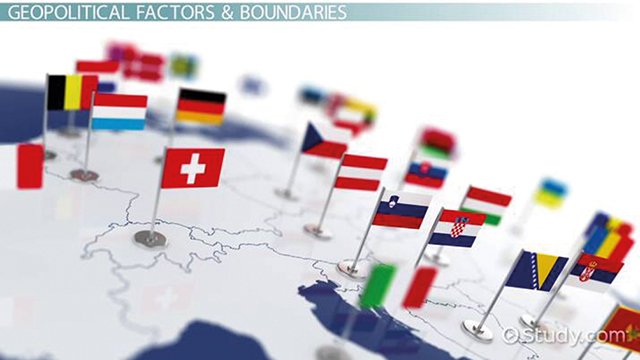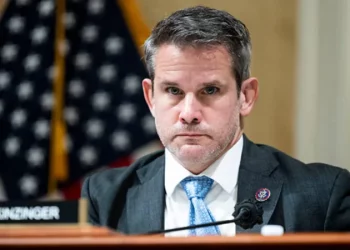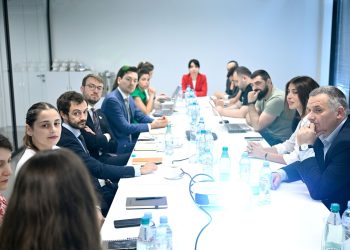Read Part 1.
Read Part 2.
Read Part 3.
As the China challenge is increasingly viewed as a primary preoccupation by US policy-makers, the push to readjust or even completely remake the liberal order to again benefit American interests will become increasingly stronger. Perhaps Trump’s presidency was more about laying the groundwork for remaking the existing order. Under future presidents, the efforts to remake will continue. Most likely those measures will become subtler, without causing radical changes, but be extended over a long period of time by reassuring America’s most vital allies on the need to follow Washington’s lead.
Several paths are open for the liberal order to manage internal challenges, the illiberal threat and the growing power of China. What follows cannot be an exhaustive list of possible future world orders and the fate of liberalism, but the below ideas or rather projections are based on historical examples and present geopolitical developments. Perhaps elements from each of the suggestions could be present in the future world order.
The first scenario could be about curtailing the liberal drive to spread across the world. Some think if America could not impose a liberal order on the whole world even during its unipolar moment, when it wielded a far more powerful array of instruments, it would be wise to scale back the liberal push now it is faced with formidable powers, especially as the latter grow increasingly cooperative. There is also a more or less even spread of technologies which makes a military solution much costlier. A world for no sole power to dominate will gradually emerge. This will require fundamental re-invention or the re-imagining of the present world order. Perhaps going back to the old ways, limiting Western universalism and containing it within the boundaries of what it was in the 1990s and early 2000s, would be a possibility.
Coexistence with rival ideological trends could be entertained, though not without intense competition. The idea of coexistence will pave the way for cooperation on major global issues among big players. But, on the negative side, it could also lead to acknowledging specific states’ geopolitical interests in certain regions. Spheres of influence effectively kill liberal internationalism, limiting the effectiveness of the rules, treaties, and other organizing bargains which underwrite the present world order. Tied to the spheres of influence is the concept of multipolarity so much propagated by Russia and others. In a way, the multipolarity is an evolution of the present world order and might not involve the emergence of a completely hostile and chaotic order, but it would nevertheless allow the emergence of competing security and economic blocs.
In fact, there are already clear signs of emerging “techno-economic blocs” in Eurasia. Extension of control over the digital space increases control over vital users’ information running through various platforms. The blocs, based on competing technological platforms which have been created by major US, Chinese, European, and Russian companies, will be made up of cognitive, computing, data transmission, and encryption technologies and massive platforms such as search engines, instant messengers, social networks, supercomputers are now a part of a geopolitical competition across the Eurasian landmass.
Each techno-economic bloc will strive to have its own distinct development model based on unique technological tools and scientific knowledge. The first such techno-economic bloc is taking shape around the US: Canada, Great Britain, Australia, and New Zealand. In close association with the US bloc is the European techno-economic one and small states dispersed across Eurasia, which tend to trust the Western technology platforms.
Another techno-economic bloc is shaping up around China. Through its BRI, Beijing exports major computing, data transmission, search engines to the countries in Indo-Pacific, South-East Asia, and Central Asia. The Chinese model is more autarkic and helps neighboring states to establish an effective control over the population.
The Russian platform is arguably the smallest and more vulnerable, as the country lags in commercialization of innovation produced by the military-industrial complex and also lacks large population numbers. Russian platforms such as VK.com, Moi Mir, Taxify, Mail.ru, etc., are being transformed into the same tools of geopolitical influence as the existing dichotomy of American and Chinese companies: Facebook and WeChat, Amazon and Alibaba, Cisco and Huawei.
We are only in the early stages of the formation of techno-economic blocs, but the competition will likely accelerate in the coming years. Russia’s and China’s interests will be more aligned as they face different Western technological standards and the resolve (though not always successful) on pushing against the illiberal use of technologies.
Analysis by Emil Avdaliani
Emil Avdaliani is a professor at European University and the Director of Middle East Studies at the Georgian think-tank, Geocase.













